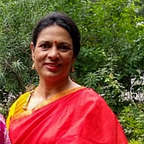Additional challenges of becoming a scholar
So, you have decided to join a PhD program. You must have prepared yourself to spend your time between reading, assimilating and planning your own research project. The general perception is that, as a PhD scholar you need to read a lot, and research. It is not wrong; research and research-related reading take up a major chunk of a PhD scholar’s time. However, there are some other challenges to be mastered too. Having a few more feathers in your cap will make your journey a smoother one.
1. Time management: It is often said that a PhD scholar doesn’t have to stick to fixed working hours. The other side of this privilege is that you are solely responsible for your working hours and productivity. For 4–5 years, you are going to be your own boss. If not careful, you may stray from your goals or spend too much time pursuing insignificant issues. You also need to maintain a good work-life balance to avoid burnout in the long run. Suffice to say, time management is going to be one of the biggest challenges. Ideally, you need to make multiple plans of different time frames. For example, one with a quarterly/half-yearly goal, another with a weekly goal. Learn to set reasonable long-term goals and then break them into smaller goals. Don’t forget to mark vacation time on your planner. Your PhD life will be much easier with a time table, even if you stick to it for only 70%.
2. Command over English language: This is more relevant for students from non-English speaking backgrounds. English has become the global language. You may choose to write your research papers and thesis in your native language but most impactful research remains in English. Why restrict the range of audience for your paper and consequently its citations? One of the common feedbacks received from reviewers is that the language of a paper is not up to scratch. Your command over English should allow you to write concise, professional papers that are both lucid and to the point. Improving your command over English is the first step towards a successful PhD journey.
3. Oral Communication: Have you ever come across a less renowned professor who turned out to be a master of their subject, while there were others whose lecture halls were crowded? Good research work is a must for a successful scholar. To be able to present your research findings to others is equally important. You have written a brilliant paper that’s why it got selected for the conference. Presenting it doesn’t mean just reading the whole paper out of slides. To present your work of months in 15 minutes (standard time allotted at conferences) requires lots of homework and good oral communication skills. Remember, at the conference, you are going to be one of 100’s of presenters. To stand out, you need to captivate your audience. Working on your presentation and communication skills will elevate you to the next level. If you are confident about your presentation, you will be able to connect with your audience and keep them engaged.
4. Art of Networking and Cooperation: The word researcher springs up the picture of a studious, introvert kind of person. For such a person, mastering the art of networking sounds contradictory. Still, for a successful academic career, one must learn to meet new people and build a network. Connect with your fellow PhD students, be part of some peer group. Grab the chance of meeting guest professors invited by your supervisor or department. Make new connections at conferences, have conversations with people. Just starting a conversation is not enough, learn to work as a team, be cooperative and helpful. These are the people working in your field, some at your level, some way ahead of you. One of them may become your future colleague/partner or boss.
5. Information Management: As a scholar you need to be up to date with any new information, papers coming out in your field. Some may be related to your current work, others maybe pointers for future interest and some may be false alarms. You need to learn to critically analyze and evaluate the information coming from multiple sources. Learn to think innovatively while assimilating information and categorize them before saving for future use.
Your aim as a PhD student is to look for some unanswered problems which may fill the gap in existing knowledge and provide a base for further research. However, PhD is called a journey for a reason. You need to evolve to succeed. You will have to master many other unrelated challenges along the way. But in the end, you will not only have a doctoral degree but a quiver of skills which will come handy throughout your life, in whichever field you join after your PhD.
